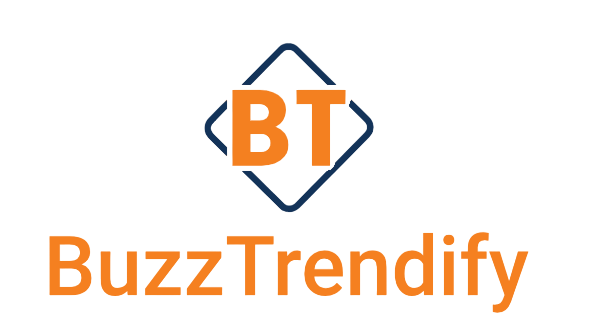At a busy coffee shop, my friend shared her worries about retirement savings. She had been investing, but taxes were eating into her gains. I told her about tax yield investments and how they could help.
Explaining tax-efficient strategies, I showed her how to boost her returns. It’s not just about saving money. It’s about investing wisely and using tax breaks to your advantage.
We talked about high-yield tax investments and the best tax-efficient ones. This guide is for anyone, whether you’re new to investing or looking to improve your portfolio. Let’s explore how tax yield investments can make your portfolio more efficient and increase your returns.
Key Takeaways
- Tax yield investments help maximize returns while minimizing liabilities.
- Understanding how taxes impact investment returns can significantly enhance your growth.
- Utilizing tax-advantaged investments is key for building long-term wealth.
- High-yield tax investments can greatly improve your portfolio’s performance.
- Strategically planning for taxes can lead to better financial outcomes.
Understanding Tax Yield Investments
Investing can seem tough, with taxes adding to the challenge. Tax yield investments offer a simple way to handle taxes and boost returns. They aim to reduce taxable income, helping you keep more of your earnings. Let’s explore what tax yield investments are and their benefits.
What Are Tax Yield Investments?
Tax yield investments include financial tools designed to lower tax bills. This group includes municipal bonds, tax-managed funds, and accounts with tax perks. Each type is made to grow your money while keeping taxes low. Knowing how they work can help you pick the right investments for your goals.
Benefits of Tax Yield Investments
There are many good things about tax yield investments:
- Lower Tax Burdens: They can help you pay less in taxes, keeping more of your money invested.
- Growth Opportunities: These investments support long-term growth, avoiding common tax problems.
- Diverse Options: You can choose from many types, like municipal bonds or tax-advantaged accounts, to fit your strategy and improve tax efficiency.
The Importance of Tax Efficiency in Investing
As I’ve learned, tax efficiency is key to growing wealth. Not considering taxes can cut down your returns a lot. So, it’s vital to invest with taxes in mind. Knowing how taxes affect your gains, dividends, and interest is important for your earnings.
How Taxes Impact Your Investment Returns
Taxes come in different types, like capital gains tax and income tax on dividends and interest. Capital gains tax hits when you sell something for more than you bought it for. Dividends are taxed differently, depending on their type. These taxes can reduce your profits, making tax-efficient investments important.
By understanding these tax impacts, you can make choices that help reach your financial goals.
Strategies for Maximizing After-Tax Earnings
There are ways to boost your after-tax earnings. Here are some effective strategies:
- Use tax-advantaged accounts like IRAs and 401(k)s for tax benefits on contributions and growth.
- Try tax-loss harvesting by selling losing investments to balance out gains.
- Look into municipal bonds for interest that’s tax-free at the federal and sometimes state level.
Types of Tax-Advantaged Accounts
It’s key to know about tax-advantaged accounts to cut down on taxes. These accounts help your money grow without being taxed right away. Let’s look at some top tax-efficient investments you can find in these accounts.
Individual Retirement Accounts (IRAs)
An IRA helps you save for retirement with tax perks. You can deduct contributions to a traditional IRA, and your money grows without taxes until you take it out. Roth IRAs offer tax-free growth and withdrawals in retirement. They’re great for long-term investors because of these benefits.
401(k) Plans and Employer-Sponsored Plans
401(k) plans are another smart choice for tax benefits. You put in money from your paycheck, which lowers your taxes for that year. Employers might add to your contributions, boosting your savings. This strategy offers tax perks and uses employer help to grow your retirement funds.
Health Savings Accounts (HSAs)
Health Savings Accounts (HSAs) are special for saving on medical costs. You put in money before taxes, which can lower your taxable income. Your money grows without taxes, and you won’t pay taxes on withdrawals for medical expenses. HSAs are a smart way to save for health and wealth.
Municipal Bonds: A Tax-Advantaged Option
Municipal bonds are a great choice for those looking to grow their money without paying taxes. They are perfect for people who make a lot of money because they get special tax treatment. Let’s look at the good and bad sides of these investments.
Benefits of Investing in Municipal Bonds
Municipal bonds have many perks. The biggest plus is that the interest you earn is tax-free at the federal level. Often, it’s also tax-free at the state and local levels, depending on where you live. This means you can keep more of your money compared to other investments.
They also offer good yields, making them a solid choice for those seeking high returns. This is why many see them as a top pick for tax-managed investments.
Risks Associated with Municipal Bonds
Despite their benefits, municipal bonds come with risks. The biggest risk is credit risk. If the city or state that issued the bond can’t pay it back, you could lose money. Another risk is interest rate risk. When interest rates go up, the value of your bond might go down, affecting your returns.
Understanding these risks is key to making smart choices with these investments.
Real Estate Investments and Tax Benefits
Investing in real estate can lead to more than just property value growth. It also offers tax benefits that can boost your financial portfolio. Knowing how to use these benefits can help you make more money with less tax.
Depreciation as a Tax Shield
Depreciation is a key advantage of real estate investments. It lets investors deduct a part of the property’s value from their taxable income over time. This can lower the taxes they owe, acting as a shield against taxes. With smart planning, you can use depreciation to keep more of your income tax-free.
1031 Exchange: A Tax Deferral Strategy
The 1031 Exchange is another way to save on taxes. It lets investors delay capital gains taxes by buying another property with the sale proceeds. This keeps your money working for you instead of going to taxes. It also helps your investments grow by reinvesting in new properties.
| Strategy | Benefit | Details |
|---|---|---|
| Depreciation | Tax Shield | Reduces taxable income by allowing deduction of property value over time. |
| 1031 Exchange | Tax Deferral | Defers capital gains taxes by reinvesting in like-kind properties. |
Tax Loss Harvesting Strategies
Tax loss harvesting is a smart way to invest with taxes in mind. It means selling investments that have lost value to balance out gains in other areas. This way, you can lower your taxes and make your portfolio stronger.
What is Tax Loss Harvesting?
Tax loss harvesting lets you sell losing investments to cut down on taxes. It’s a way to reduce what you owe in taxes. It also helps you smartly move your investments around.
How to Implement Tax Loss Harvesting Effectively
To use tax loss harvesting well, follow these steps:
- Find investments that have lost value.
- Check your capital gains to see how much loss you need.
- Sell the losing investment and get the loss.
- Buy a similar investment to keep your strategy going, following IRS rules.
- Keep records of your losses and gains for tax time.
By doing these steps, you use your losses to your advantage. This strategy turns setbacks into chances for growth.
The Role of ETFs in Tax Yield Investments
Exchange-Traded Funds (ETFs) are a top pick for those aiming for tax-efficient investments. They often pass on fewer capital gains than mutual funds. This makes them a smart choice for managing taxes in your portfolio.
Advantages of Tax-Efficient ETFs
Tax-efficient ETFs come with several benefits. Here are the main advantages:
- Lower Capital Gains Distributions: ETFs have lower turnover, leading to fewer taxable gains.
- In-Kind Redemptions: Their unique structure helps keep more of your returns by minimizing taxable events.
- Diverse Asset Exposure: ETFs let you diversify your portfolio while keeping taxes low.
How to Select the Right ETFs for Your Portfolio
Picking the right ETFs is key for tax management. Consider these factors:
- Financial Goals: Know what you aim for in your investments—growth, income, or both.
- Risk Tolerance: Find ETFs that match your comfort with market ups and downs.
- Underlying Assets: Check the assets in the ETF to see if they fit your strategy.
By thinking about these points, you can boost your returns with tax-efficient ETFs. This approach can lead to a more prosperous financial future.
Dividend Stocks: Income with Tax Benefits
Dividend stocks are great for making a steady income and getting tax benefits. It’s important to know the difference between qualified and ordinary dividends. This knowledge helps you earn more and build a tax-efficient portfolio.
Qualified Dividends vs. Ordinary Dividends
Qualified dividends are taxed at a lower rate, which can boost your returns. Ordinary dividends, on the other hand, are taxed like regular income. This can cut into your investment gains. Here’s a quick comparison:
| Type of Dividend | Description | Tax Rate |
|---|---|---|
| Qualified Dividends | Dividends from shares held for longer than 60 days within the required period. | 0%, 15%, or 20% (depending on income level) |
| Ordinary Dividends | Dividends paid on shares that do not meet the holding period requirement. | Taxed at regular income tax rate |
How to Build a Dividend-Focused Portfolio
To build a dividend-focused portfolio, pick stocks with reliable dividends and consider taxes. Here are some steps:
- Research Dividend Stocks: Find companies known for paying consistent dividends.
- Analyze Dividend Yield: Make sure the dividend yield fits your investment goals.
- Diversify Across Sectors: Spread your investments to reduce risk.
- Consider Dividend Growth: Choose stocks with a history of increasing dividends.
- Review Tax Implications: Think about how dividends are taxed to keep your investments tax-efficient.
By using these strategies, you can build a strong dividend-focused portfolio. It will give you income and help you save on taxes, making your investment more rewarding.
The Impact of Capital Gains Tax
Understanding capital gains tax is key in tax-conscious investing. This tax can greatly impact your investment returns. It depends on whether your gains are short-term or long-term. I’ll explain the differences and share ways to manage your taxes.
Short-Term vs. Long-Term Capital Gains
Short-term capital gains are for assets held less than a year. They’re taxed at regular income rates, which can be high. Long-term gains, from assets held over a year, get lower tax rates. Knowing this helps in planning your investments.
Strategies to Minimize Capital Gains Tax
Using smart strategies can help with capital gains tax. Holding investments longer can lead to lower taxes. Tax-loss harvesting, selling losing investments to offset gains, can also reduce taxes.
These methods help in a tax-conscious investing approach. By being informed and making smart choices, you can lessen the tax impact on your growth.
Tax Considerations for Self-Directed Investments
Investing through self-directed accounts lets you explore many options, like real estate and private equity. This flexibility is great, but it also brings complex tax rules. Knowing these rules can help you make more money while staying within the law. Let’s look at the key tax management points for these investments.
Exploring Alternative Investments
Self-directed accounts let you diversify beyond usual stocks and bonds. You can look into real estate, commodities, and private equity. These choices can be rewarding, but they also have different tax rules. It’s important to think about how each choice affects your taxes.
Navigating Tax Regulations for Self-Directed Accounts
Understanding tax rules for self-directed accounts is key. Here are some important things to remember:
- Contribution Limits: There are limits on how much you can put into self-directed accounts, just like traditional retirement accounts.
- Unrelated Business Income Tax (UBIT): Income from your investments that’s not related to your main business might be taxed under UBIT.
- Exemptions and Deductions: Some investments might qualify for special deductions, which can lower your tax rate.
- Record-Keeping: Keep detailed records of all your transactions. This helps with tax filing and avoids mistakes.
By tackling these tax issues early, you can make the most of tax-efficient investments. This way, you can reduce taxes on your self-directed portfolio.
Choosing the Right Advisor for Tax Yield Investments
Finding the right financial advisor is key to your financial success. They should know a lot about tax-efficient investments and understand your goals. A good advisor will help you get the most from your investments while keeping taxes low.
Key Qualities to Look for in an Advisor
- Experience: Look for an advisor with a lot of experience in tax yield investments and a good track record.
- Transparency: Choose an advisor who is open about fees and how they plan to invest your money.
- Personalization: Your advisor should make a plan that fits your specific financial situation and goals.
- Collaboration: A great advisor will keep in touch with you and work together to manage your finances.
The Importance of a Holistic Financial Approach
A holistic financial approach is more than just focusing on tax yield investments. It means understanding all parts of your finances, like retirement plans and estate planning. This way, advisors can give you advice that fits your whole financial picture.
By looking at all your finances together, you can work towards a more complete and efficient financial future.
Staying Informed About Tax Laws and Updates
In today’s fast-changing financial world, it’s key to keep up with tax laws and updates. This is very important for tax-efficient investments. Knowing the details in tax rules helps you manage your portfolio well and make smart choices to boost your returns.
To stay current, use different resources. IRS publications are a good place to start, as they offer important advice from the top. Also, signing up for trusted financial newsletters or following financial news sites can help you know about big tax law changes or upcoming updates that might affect your investments.
Being ahead in tax policy lets you make smart money choices. Whether it’s tweaking your portfolio for tax benefits or planning for the long term, knowing the latest can help you reach your financial goals. Remember, knowing a lot is your best ally in getting the most from your investments.
FAQ
What are the most effective tax yield investments?
Top tax yield investments include municipal bonds and tax-managed funds. Also, accounts like IRAs and 401(k) plans are great. These options help reduce taxes and increase your after-tax earnings.
How can I maximize my tax yield through investments?
To boost your tax yield, use smart investment strategies. Try tax-loss harvesting to lower capital gains. Also, keep investments in tax-advantaged accounts for growth without immediate taxes.
What tax-advantaged investments should I consider?
Think about municipal bonds and real estate for tax benefits. Health Savings Accounts (HSAs) are also good. Each offers unique tax advantages and growth chances to meet your financial goals.
Why are municipal bonds considered tax-efficient?
Municipal bonds are tax-efficient because their interest is often tax-free. This is true for federal taxes and sometimes state and local taxes too. It helps high earners keep more of their earnings.
How do capital gains impact my overall investment strategy?
Capital gains are key to your investment strategy. They affect how much tax you pay on profits. Knowing the difference between short-term and long-term gains helps. Holding investments longer can lower your tax rate.
What is tax-loss harvesting and how does it work?
Tax-loss harvesting involves selling losing investments to offset gains. This reduces your taxable income. It’s a smart way to improve your tax yield. Timing is everything in this strategy.
Can Exchange-Traded Funds (ETFs) be tax-efficient?
Yes, ETFs are often better than mutual funds for taxes. They create fewer capital gains, which lowers your tax bill. They’re a good choice for tax-conscious investors.
What are the benefits of a financial advisor experienced in tax yield investments?
A tax-savvy advisor offers valuable guidance. They help with tax-efficient investments and navigate tax rules. Their expertise helps tailor your portfolio to your financial goals.
How do I stay updated on tax laws affecting my investments?
Keeping up with tax law changes is vital. Check IRS publications, financial news, and tax-focused newsletters. Staying informed helps you adjust your strategies for better results.





